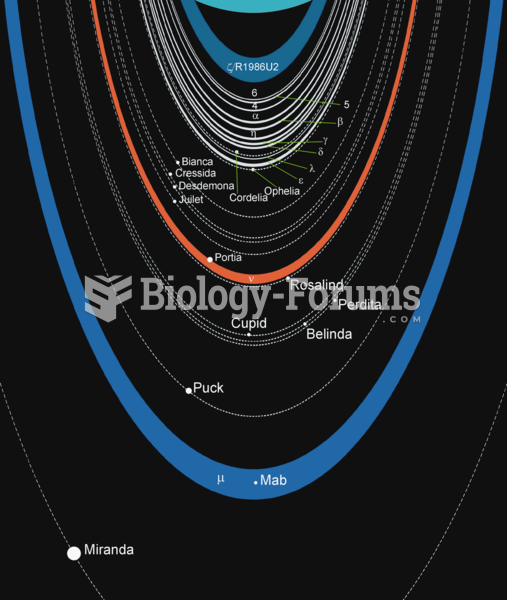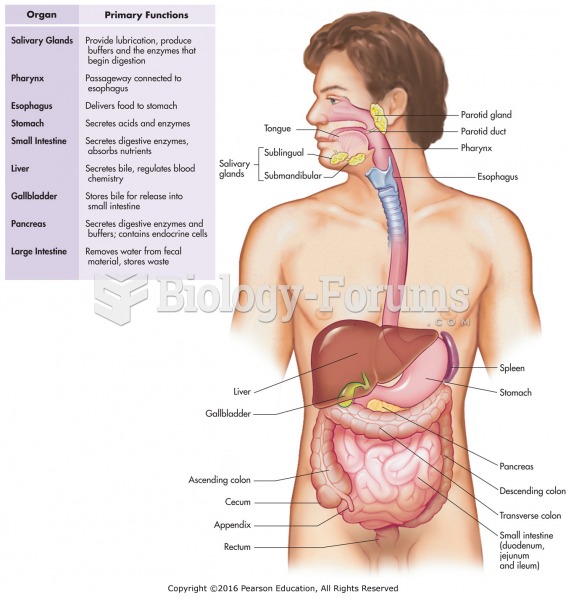|
|
|
People who have myopia, or nearsightedness, are not able to see objects at a distance but only up close. It occurs when the cornea is either curved too steeply, the eye is too long, or both. This condition is progressive and worsens with time. More than 100 million people in the United States are nearsighted, but only 20% of those are born with the condition. Diet, eye exercise, drug therapy, and corrective lenses can all help manage nearsightedness.
On average, someone in the United States has a stroke about every 40 seconds. This is about 795,000 people per year.
The B-complex vitamins and vitamin C are not stored in the body and must be replaced each day.
People with high total cholesterol have about two times the risk for heart disease as people with ideal levels.
Drug-induced pharmacodynamic effects manifested in older adults include drug-induced renal toxicity, which can be a major factor when these adults are experiencing other kidney problems.







